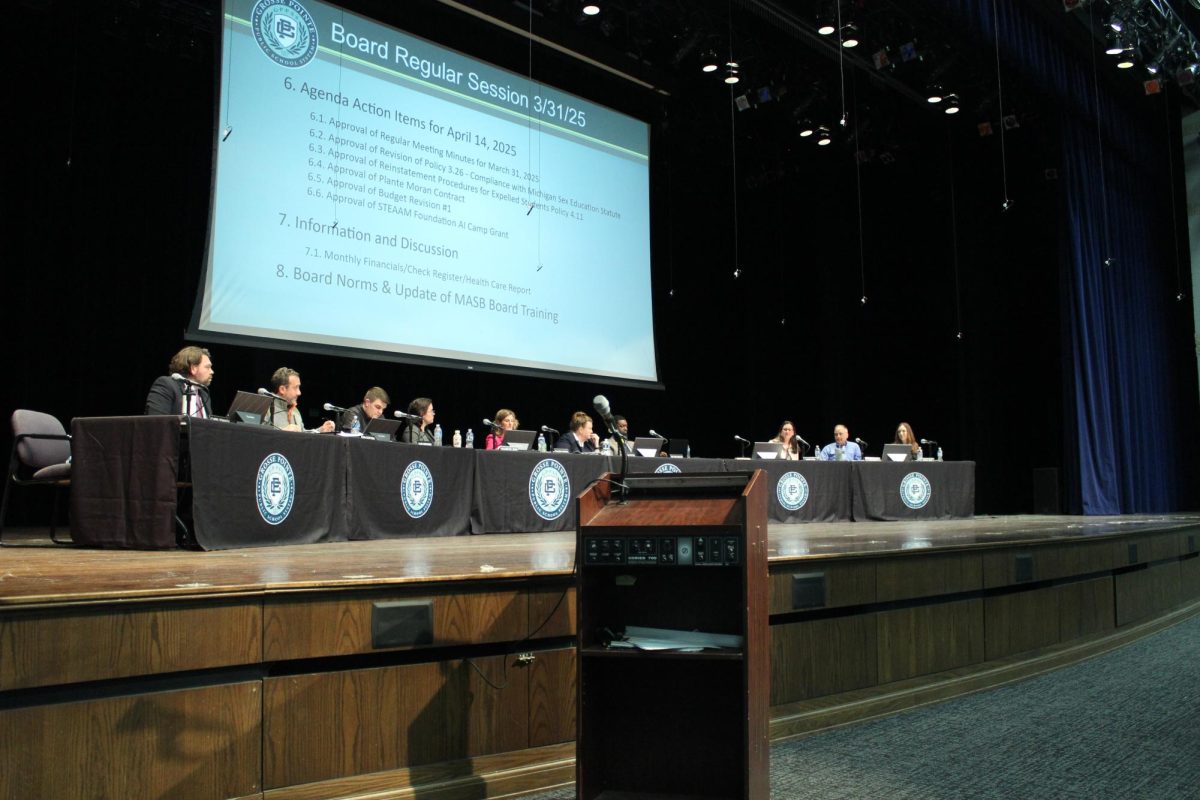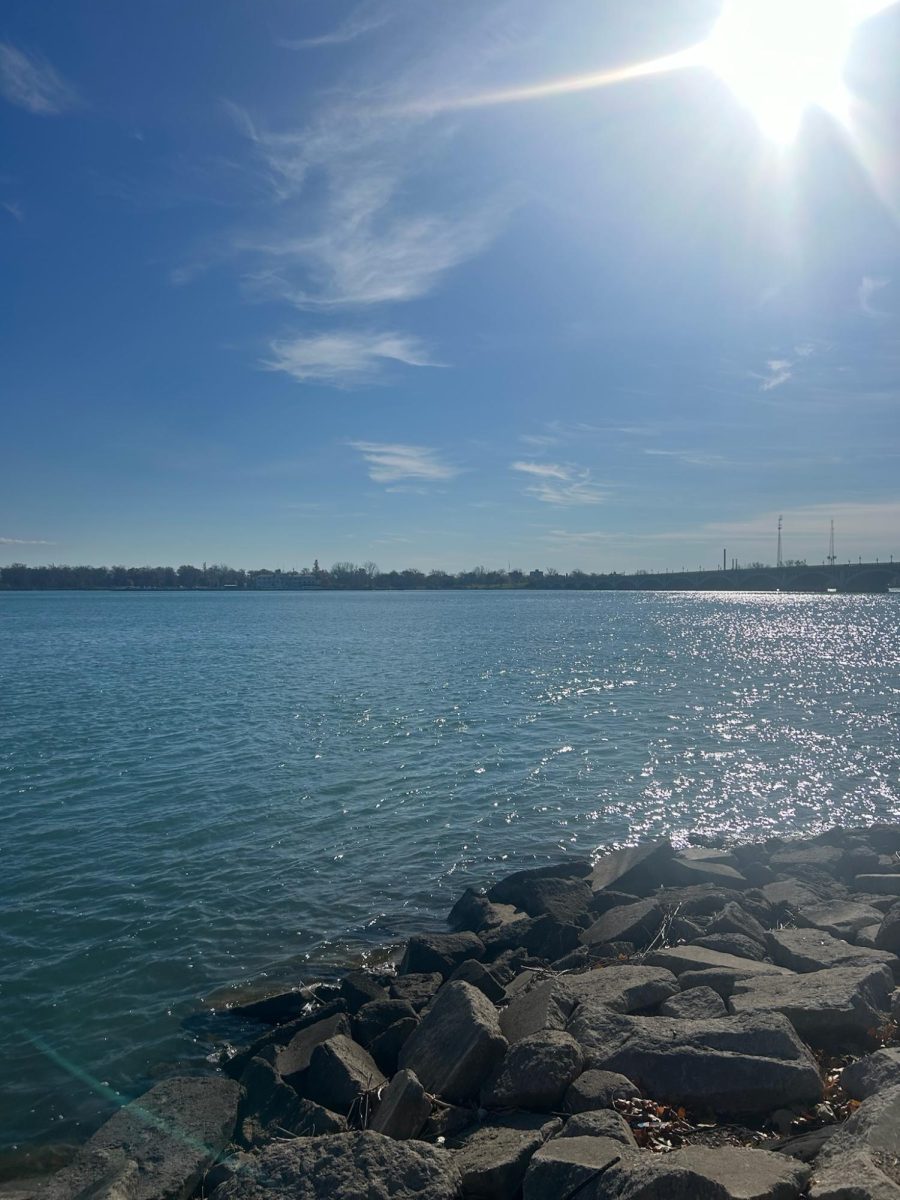High levels of E. Coli in Michigan lakes
Lake St. Clair
June 9, 2022
Michigan is best known for having the longest freshwater coastline in the world and thousands of inland lakes. But recently, high levels of E. Coli in Michigan’s lakes have become a more prominent issue, specifically in Lake St. Clair.
Escherichia coli, also known as E. coli, is a pathogen that lives in the intestines of healthy animals and people. This bacteria contaminates people through infected food and water or person-to-person contact and can cause a severe infection from ingesting undercooked meat or a mouthful of contaminated pool water with E. coli present. The increased E. coli levels is due to an overflow of water that passes from the Clinton River into Lake St. Clair.
According to environmental science teacher Sean McNamara, wastewater systems are made to speed up the natural process by which water is purified, and are connected to storm sewers.
“When there is an overcapacity of water, this bacterium overflows into our lakes and doesn’t have time to be purified,” McNamara said.
According to Amy McMillian, the E. coli levels have dropped in the last four years at Metro Beach in Harrison Township.
“We’ve not had week-long closures for at least four years because of all of these changes that we’ve made in order to better manage runoff into the lake and make it safer,” McMillan said.
McMillan has been working to make changes at the parks and beaches so the community can visit and have no worries or risks while swimming. Since large amounts of E. coli come from geese, McMillan has partnered with the company “Goose Busters” who have Border Collies that keep geese away to prevent them from congregating near beach areas.
“One of the things that can be done with E. coli is we can DNA test E. coli,” McMillan said. “This is very useful to figure out where exactly the E. coli is coming from, if not from [the geese].”














































































